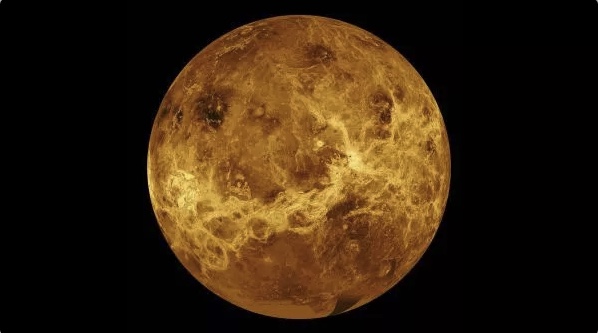
Venus may still be geologically active today, which could mean that Earth’s planetary sibling is a good place for scientists to learn about early Earth and faraway worlds.
An international team of scientists used old radar images from NASA’s Magellan mission, which ended operations in 2004, to study the Venusian surface. They found places where chunks of crust were sliding and turning like “pack ice,” according to the researchers.
Since the lowlands the observations focused on are relatively young, the geological activity that triggers the motions happened not too long ago and may even be continuing today. The work suggests that Venus may be generating geological activity from deep within itself, unlike previous speculation that Venus’ crust was one solid block like that of Earth’s moon.


